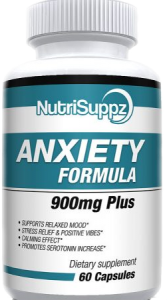Anxiety is a natural and normal response to stress or perceived threats. It’s a complex emotion characterized by feelings of apprehension, uneasiness, or worry. While everyone experiences anxiety from time to time, it becomes a concern when it is excessive, persistent, and interferes with daily life.
There are different types of anxiety disorders, including generalized anxiety disorder (GAD), social anxiety disorder, panic disorder, and various phobias. Each type has its own specific features and symptoms.
Common symptoms of anxiety may include:
- Excessive worrying: Persistent and uncontrollable thoughts about future events or situations.
- Restlessness: Feeling on edge or restless, having trouble relaxing.
- Fatigue: Feeling tired and lacking energy.
- Irritability: Easily getting frustrated or agitated.
- Muscle tension: Physical tension or muscle aches.
- Difficulty concentrating: Finding it hard to focus or concentrate on tasks.
- Sleep disturbances: Trouble falling asleep, staying asleep, or having restless sleep.
It’s important to note that anxiety can be a normal response to certain situations, helping individuals prepare for challenges or danger. However, when anxiety becomes chronic or significantly impairs one’s daily functioning, it may be indicative of an anxiety disorder. If someone is experiencing persistent and severe anxiety, there are varieties of methods to achieve relief.


No Comments